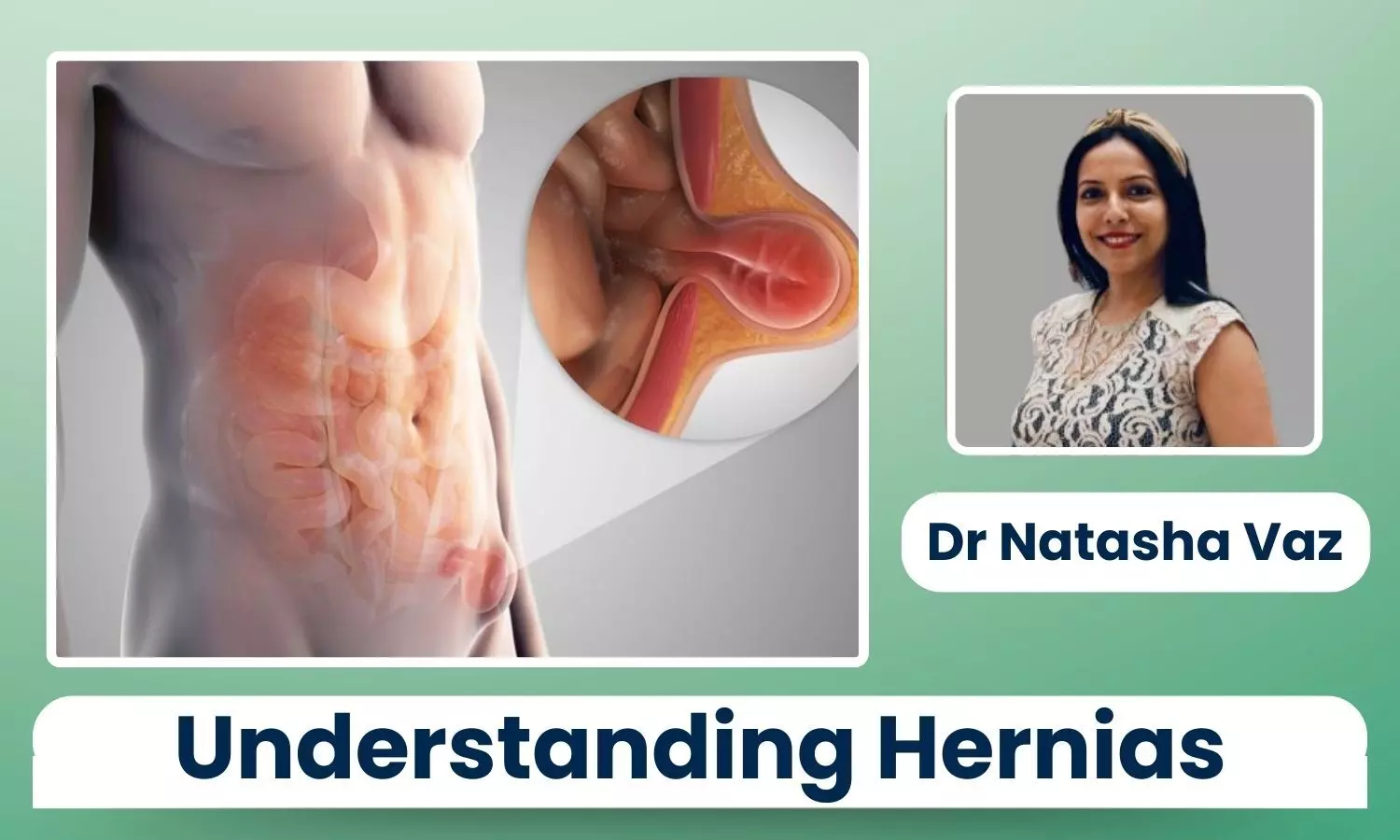Understanding Hernias: From Early Signs to Surgery - Dr Natasha Vaz

As a general surgeon at Holy Family Hospital, one of the most common conditions I see in outpatient clinics and emergency settings is hernias.
While the term might sound alarming, hernias are incredibly treatable, especially when diagnosed early.
Yet, due to a lack of awareness or delayed action, many patients wait too long to seek care, increasing their risk of complications.
Today, I would like to share some insights to help you understand the causes, symptoms of hernia and, most importantly, when it’s time to consider surgery.
What Is a Hernia?
An organ or sometimes tissue may protrude through a weak area in the surrounding muscle or connective tissue.
Think of it like a bulge or protrusion, something that’s slipped out of place. While hernias can appear in various parts of the body, the abdomen is the most commonly affected area.
Several types of hernias, distinguished by location and risk factors:
1. Inguinal Hernia: This is the commonest type, especially in males. It happens when the intestine or bladder protrudes through the abdominal wall or into the inguinal canal in the groin area.
2. Umbilical Hernia: More commonly seen in infants and pregnant women, this type forms a bulge near the belly button.
3. Hiatal Hernia: A part of your stomach moving into your chest via the diaphragm. This could result in symptoms of acid reflux or heartburn for the affected patient.
4. Incisional Hernia: Incisional Hernias are developed at the site of a previous surgical incision where the tissue has not healed properly.
5. Femoral Hernia: Less common yet more common in women, femoral hernias appear an inch below the groin and can be difficult to diagnose.
Symptoms to Watch For:
The loudest symptom of hernias would be the glaringly visible lump or bulge which can become more prominent while coughing, bending, or lifting heavy objects.
Some hernias can even be painless, but they can cause some level of discomfort, pressure, or a feeling of being pulled. The severe cases will comprise:
● Sharp or burning pain at the site of the bulge
● Nausea or vomiting
● Inability to push back the bulge upon manual pressure
● Redness or tenderness overlying the lump
If you notice any of these symptoms, especially if the hernia is painful or cannot be reduced (pushed back in), it is important to seek medical attention right away.
Risks of Delaying Surgery:
One of the most frequent misconceptions I hear from patients is: “If it’s not hurting, why fix it?” The problem with this approach is that hernias don't heal on their own. They either stay the same or get worse.
Over time, a small, painless hernia can grow larger, become trapped (incarcerated), or even lose blood supply (strangulated), turning into a surgical emergency. These complications not only increase the risk of infection and damage to nearby tissues but also make the surgery more complex and recovery longer.
When to Consider Surgery:
In most cases, once a hernia is diagnosed, surgery is recommended, even if the hernia isn’t currently causing severe symptoms. Early repair helps prevent emergencies and allows for a quicker, smoother recovery.
That said, we do consider factors like the patient’s age, overall health, and lifestyle before deciding on the best time for surgery.
Modern Repair Techniques/Treatment:
Thankfully, hernia surgery has evolved significantly over the past decade. Today, we often use minimally invasive techniques such as laparoscopy or robotic-assisted surgery.
These approaches involve small incisions, less pain, quicker healing, and a faster return to daily activities.
We often reinforce the weakened area with mesh to reduce the risk of recurrence. In conclusion, hernias may seem like a minor issue, but ignoring them can lead to serious consequences. Early detection and timely intervention are key.
If you notice a persistent bulge or discomfort in your abdomen or groin, don’t delay. Consult a qualified surgeon; modern surgery is safer, faster and far less daunting than most people expect.
Disclaimer: The views expressed in this article are of the author and not of Health Dialogues. The Editorial/Content team of Health Dialogues has not contributed to the writing/editing/packaging of this article.


